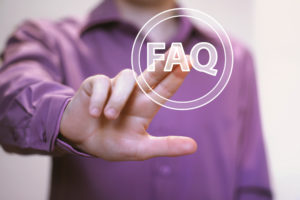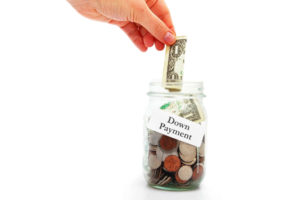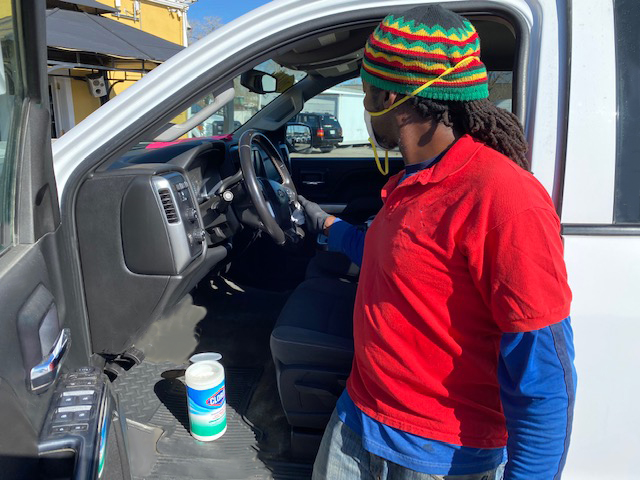Dye Autos Denver Area Truck and Automotive Blog
Frequently Asked Questions about Pickup Truck Financing
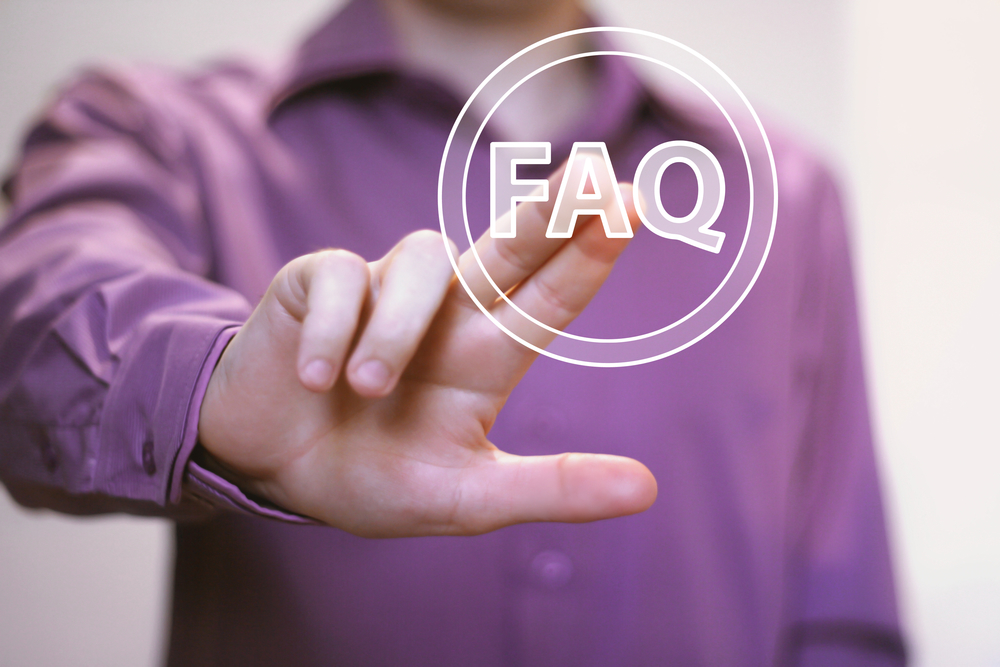 Curious if you can qualify for a car loan? Get the answers to your most frequently asked pickup truck financing questions right here.
Curious if you can qualify for a car loan? Get the answers to your most frequently asked pickup truck financing questions right here.
What is APR?
This is the Annual Percentage Rate. The interest rate is the percentage of the principal that a lender charges you to borrow the money.
How is my APR decided?
There are many variables associated with defining APR rates.
- Current economic/market conditions govern bank rates.
- Credit score and payment history.
- Your down payment amount.
- The amount you finance.
- The type of vehicle you’re financing.
- Length of your finance contract.
What is a co-signer or co-applicant and why would I need one?
A co-signer is a person who guarantees timely payments of monthly car loan installments and assumes responsibility for payment if a borrower misses payments. You may need a co-signer if you have negative credit or no credit history and want to get approved for a lower interest rate.
Is my trade-in considered a down payment?
Yes, when buying a car or truck, your trade-in vehicle can serve as your down payment. However, there are factors to consider in that decision such as whether or not it’s paid off (there is no loan on the vehicle) and how much equity you might have.
What is a good down payment on a pickup truck?
A down payment isn’t always required for purchase, but it’s definitely a good idea. Consider these two important factors to determine how much your down payment should be.
- Credit Score: your score will help the bank determine what they require. The higher your score, the lower your down payment amount needed.
- Monthly budget: the higher your down payment, the lower your monthly payment will be.
Can I qualify for a car loan if I have bad credit?
Buying a pickup truck with bad credit can be intimidating. If there was ever a good example of the phrase, “Knowledge is power,” it’s in taking on the process of buying a pickup truck when your credit is less than perfect. The first thing you need to know is – it’s not hopeless.
- Talk to your dealer first. Get the right information instead of assuming you won’t qualify.
- Work on your credit before you start shopping.
- Get Pre-Approved (we have an easy way to do that here)
Can I get a car loan after bankruptcy?
- Look for the lowest interest rate but be realistic.
- Keep your expectations low and your possibilities open on the type of vehicle.
- Do your homework on which dealership to work with.
A dealer with a lack of experience and skills in working with people who need to buy a car after bankruptcy can very often cost the consumer hundreds of dollars. Choose to work with a dealership that has a proven track record with helping people buy a car after bankruptcy.
If I apply for a loan, does it hurt my credit?
Your credit score will be affected when you apply for a pickup truck loan. A majority of lenders run credit checks to assess the risk of lending you money. If you apply to many different places, there will be inquiries from all of them.
A good solution is to work with a dealership like Dye Autos in the Denver area (Wheat Ridge). Why? Because through our many years helping people buy pickup trucks, we know which bank will work best for you and your specific circumstances.
Is it safe to submit my information over the Internet?
Yes, your information is kept safe and secure. No unauthorized person or entity can access it because our advanced online application has encrypted security features built into it.
What haven’t we answered for you?
We’re here to answer any question you have about getting a pickup truck or car loan. If you have an unanswered question, please get in touch with us!
Dye Autos is here to help you every step of the way. Call us at (303) 286-1665 or contact us >>>here<<<.
Read MoreUltimate Guide to Making a Down Payment at the Dealership
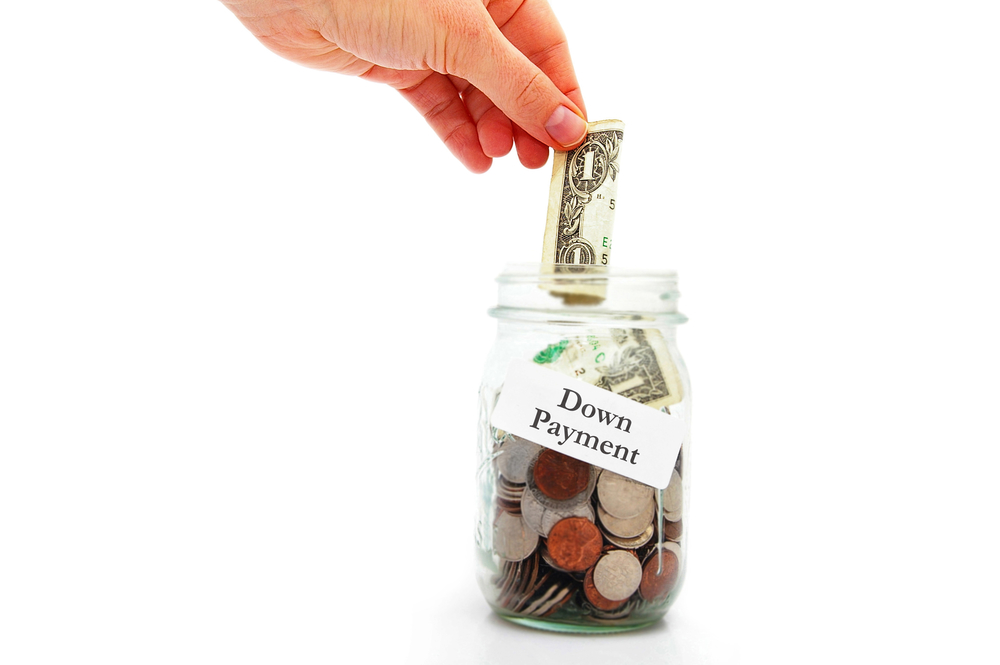 When you’re buying a new or “new to you” vehicle, whether you’re getting your auto loan through an independent lender or through a dealer, you’ll need to decide how much money you want to put down. Making a down payment at the dealership takes some preparation so your purchase runs smoothly.
When you’re buying a new or “new to you” vehicle, whether you’re getting your auto loan through an independent lender or through a dealer, you’ll need to decide how much money you want to put down. Making a down payment at the dealership takes some preparation so your purchase runs smoothly.
First, let’s define down payment.
The phrase is actually derived from the old practice of putting money down on the table to show a seller good faith when negotiating a deal. Today, the down payment is simply a way of reducing the amount of risk a lender has to take when helping you make a substantial purchase.
Do I always need a down payment?
A down payment isn’t always required for purchase, but it’s definitely a good idea. Why?
- It will reduce the amount you’ll need to borrow.
- It improves your chances of loan approval.
- You may get better terms with a down payment.
- It will reduce your monthly payment.
Is my trade-in considered a down payment?
Yes, your trade-in vehicle can serve as your down payment. However, there’s one question to answer that will determine how your trade-in down payment will be handled.
- Is your trade in loan paid off?
- If your trade-in loan is paid off, the dealer will appraise your trade-in and give you the price they’re willing to pay for your vehicle (actual cash value or ACV). You can use that amount as a down payment.
- If your trade-in loan is not paid off, the dealer will obtain the “pay off amount” and compare it with the price they are giving your for your trade-in (ACV).
- A positive difference (you owe less on your loan than your trade in’s ACV) means you can use the amount for your down payment.
- A negative difference (sometimes called “negative equity” – you owe more on your loan than your trade-in’s ACV) gets a bit more complicated.
- Does your trade-in have negative equity? For example, if your trade-in’s ACV is $3,000 and your loan pay off is $5,000, you have $2,000 in negative equity and will need to make up the difference either in your new loan or by paying additional down payment.
How much do I need to put down?
The generally advisable percentage to put down on your vehicle purchase is much like the recommended down payment on a home—20%, if you can afford it. Used cars may require less—10% or more.
Having a 20% down payment ensures that you’ll receive favorable terms on your financing, lowers the amount you need to finance, and reduces your risk of owing more on your loan than your vehicle is worth later on. The benefits of a higher down payment can include:
- Favorable financing terms
- Lower interest rate
- Higher loan approval rates
- Lower monthly payment
- Lower total interest paid
- Reduced risk of being upside down
What forms of payment do dealerships take as down payment?
When it comes to making a down payment on a car, be prepared with your method of payment. This may include:
- Cash
- Personal check
- Cashier’s check
- Credit card
- Debit card
- Pre-approved loan
- Personal loan
Pro Tips on Down Payments
- If you want to use a credit or debit card, ask the dealer if they will accept this form of down payment and if there’s a limit on how much can be charged.
- Check with your card issuer to see if there is a limit to the amount you may charge in a single transaction. The last thing you want is to have your card only be able to charge $2,000 when the total down payment is $5,000.
- Keep in mind that getting a personal loan prior to seeking approval for an auto loan will likely impact how much you can borrow. The credit inquiry and loan will show up on your credit report and affect your “Debt to Income” ratio.
Got more questions about making a down payment?
Each vehicle sale is different. At Dye Autos, we’ve sold thousands of cars and pickup trucks. We’ve helped a lot of confused people determine which down payment is right for them. Many of those customers thought they’d never be able to afford a vehicle!
Give us a chance to help you. Call us at (303) 286-1665 or use our handy online financing pre-approval form >>here<<.
Read MoreDocuments to Bring to the Dealership When Financing a Pickup Truck
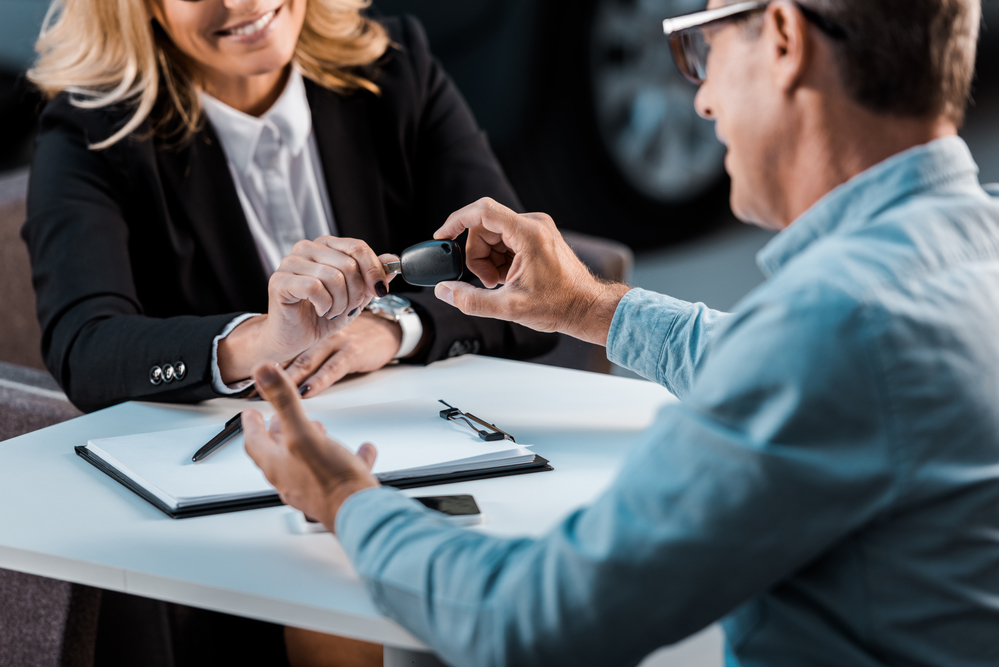 You’ve done your research, checked your credit report to make sure it’s accurate, and you’re ready to get serious about buying a pickup truck. You feel more than ready to secure financing a pickup truck, sign on the dotted line and drive home in your new ride.
You’ve done your research, checked your credit report to make sure it’s accurate, and you’re ready to get serious about buying a pickup truck. You feel more than ready to secure financing a pickup truck, sign on the dotted line and drive home in your new ride.
Sounds pretty good, right?
Sadly, there’s a chance you could drive home in your old vehicle, kicking yourself for having forgotten one of the documents you need to finalize the purchase. Here’s how to be prepared for getting the deal done on the day you’re ready to buy.
8 things to bring with you when financing a pickup truck
1. Valid driver’s license.
Customer identification is required by federal law. The types of documentation required will vary from lender to lender. In most circumstances, you’ll be required to present a government-issued I.D. showing your photograph and residence. For most, this will be a driver’s license or passport.
2. Proof of insurance.
When the dealership asks you to sign a bill of sale on your new pickup truck, you’ll also be asked to provide proof of insurance. The insurance you have must comply with state law and meet any additional requirements of the lender before you’ll be able to drive the vehicle off the lot.
If you have an existing auto insurance policy, your new car purchase may even be covered by your existing policy for a certain grace period, so be sure to check.
3. Trade-in documents
- Certificate of Title
- Registration
- Loan statement and payoff info
- Lender contact info (usually found on your loan statement)
- Service records
- Extra keys
- Any added accessories that came with your trade-in
4. Proof of income.
Your two most recent paycheck stubs. If you have more than one job, bring the stubs from those as well.
If you’re self-employed, it gets a bit trickier. Each deal is different but you’d be safe bringing at least your most recent tax return and three most recent bank statements.
5. Proof of residence.
Federal law requires lenders (and dealerships who work with them) to gather information on your residence, as well as proof of that residence. If your driver’s license is current, that may be sufficient for most dealers. You may also use your mortgage statement to verify your home address or any piece of personalized mail you have received within the last month. This may include:
- Utility bill
- Credit card statement
- Bank statement
- Property tax bill
- Medicaid or Medicare benefit statement
- Auto insurance policy
- Homeowners or renters insurance policy
You may not use a P.O Box. The only exception is for Army Post Office boxes (APO) or Fleet Post Office (FPO).
6. List of references.
What do lenders mean by a reference? Thankfully it’s a lot simpler than it might seem. As far as they’re concerned, a reference is simply someone who knows you. This means that the person can be a relative, friend, co-worker, your pastor or even your boss. As long as they’re not living in your household, they can be a reference.
Under most circumstances, six references will be sufficient. Some lenders ask for only four, but since a few may require more than this it’s always a good idea to have at least six names you can use.
7. Down payment.
Dealership forms of down payment:
- Cash
- Personal check
- Cashier’s check
- Credit card
- Debit card
- Trade-in equity
Your trade-in vehicle can serve as a down payment. If you still owe on that loan, the amount of “equity” you have can serve as your down payment. “Equity” is the difference between your trade-in’s loan payoff amount and the actual cash value of your vehicle.
8. Pre-Approval from the dealership.
The Internet is full of free advice about getting pre-approved bank or credit union loan. But no one tells you about the “insider’s secret” to financing a pickup truck: get pre-approved at the dealership!
As car loan interest rates rise, the need becomes greater for consumers to work a little harder when shopping for the best deals. Dealerships are the best place to get a loan for your pickup truck.
- Dealerships have close relationships with ALL types of lenders.
- Dealerships have flexible lenders who are open to people who have lower credit scores.
- It’s super convenient since you’re already at the dealership.
At Dye Autos, we’ve sold thousands of pickup trucks and we’ve helped a lot of people who thought they’d never be able to afford a vehicle.
Give us a chance to help you. Call us at (303) 286-1665 or use our handy online financing pre-approval form >>here<<.
Read MoreWhy Car Dealerships Are The Best Place to Get a Car Loan
 As car loan interest rates rise, the need becomes greater for consumers to work a little harder when shopping for the best deals.
As car loan interest rates rise, the need becomes greater for consumers to work a little harder when shopping for the best deals.
Shopping for a car loan can be just as daunting as shopping for a car. Most car shopping begins online. If you’ve ever done a Google search for “car loan,” you know how many hundreds of options are available.
But how do you choose which car loan is best? Here’s where your local car dealer can help.
Dealerships are the best place to get a car loan for many reasons…
It’s super convenient since you’re already at the dealer.
All of the bothersome paperwork — from title transfers to loan agreements — can be handled professionally at the dealership. The whole process goes more smoothly with this one-stop approach.
Using dealership financing sources makes it easier to access offers from multiple lenders at once. The easiest and best way to finance a vehicle is through the dealership where the vehicle is being purchased.
Dealerships have close relationships with all types of lenders.
Dealerships normally have dozens of lenders from which to choose. They work with lenders of all kinds – good credit, fair credit, bad credit – and consumers benefit from those relationships.
We’ve all experienced poor customer service and, with the consolidation of banks and other lenders, it doesn’t seem to be getting much better.
On the flip side, dealers are business members of your community and maintain good relationships with their portfolio of lenders. They are there to answer questions and help you, instead of putting you on hold or treating you like a “number.”
Dealerships have flexible lenders who are open to people who have lower credit scores.
For people who have blips on their credit history, dealers can leverage their good lender relationships to help them get a car loan, often when they’ve been rejected elsewhere.
Financial hardships can happen to anyone. There are many individuals who simply aren’t prepared for unexpected financial challenges such as job loss or medical bills. Having a close relationship with all types of lenders allows the dealer to find the right car loan for YOU.
At DYE Autos, we’ve worked with hundreds of credit-challenged customers here in the Denver – Wheat Ridge area and we understand how tough it can be. It’s a fact that lenders do lend to people who’ve been through hardship and we can help you.
Pro Tip: Always know your credit score. Your credit score is key to getting the lowest interest rate on your car loan.
Your credit score is a three-digit number that uses your credit information to assess how risky a borrower you are, and it can significantly influence how lenders decide the terms of your loan.
The higher your credit score, the lower your risk and the lower your interest rate. The lower your credit score, the riskier you are and the higher your interest rates. Be proactive in checking your credit score before you shop so you know where your credit stands before you apply for a loan.
Bonus tip: get pre-approved for a car loan.
Many dealers, like us at Dye Autos, offer an easy way for customers to get pre-approved.
This fast and easy process lets you choose how much you want to borrow based on the type of vehicle you’re looking for. Pre-approved truck financing with DYE Autos is just a click away. Visit this link >>>here<<< to get pre-qualified.
We’ll put our experience to work for you!
One of our helpful finance specialists will contact you to discuss available financing options.
“If it’s a truck you wanna buy, you’d better call DYE!”
Read More Yes, when buying a car or truck, your trade in vehicle can serve as your down payment. However, there are factors to consider in that decision.
Yes, when buying a car or truck, your trade in vehicle can serve as your down payment. However, there are factors to consider in that decision.
1. Dealers accept trade ins and cash down payments.
The amount of total down payment you’ll need is governed by two things:
- The amount that the bank requires in order to provide you with a loan. Your credit score is the driving factor.
- The amount of monthly payment that fits your budget.
2. Is your trade in loan paid off?
- If your trade in loan is paid off, the dealer will appraise your trade in and give you the price they’re willing to pay for your vehicle (actual cash value or ACV). You can use that amount as a down payment, or, in some circumstances, you can take part of it in cash back to pay for other important things in your life.
- If your trade in loan is not paid off, the dealer will get in touch with your bank for the pay off amount and compare it with the price they are giving your for your trade in (ACV).
- A positive difference (you owe less on your loan than your trade in’s ACV) means you can use the amount for your down payment.
- A negative difference (sometimes called “negative equity” – you owe more on your loan than your trade in’s ACV) gets a bit more complicated and #3 below explains more.
3. Does your trade in have negative equity?
Equity is the difference between your trade in’s actual cash value (ACV) and the amount you owe on the loan. For example, if your vehicle’s ACV is $5,000 and you owe $3,000, you have $2,000 in equity that can be used as a down payment toward the new car purchase.
If your trade in’s ACV is $3,000 and your loan pay off is $5,000, you have negative equity.
When faced with negative equity in a trade-in, you’ll need to weigh all of your options. There are three main courses of action you can take:
- Pay off the difference – This is ideal if your negative equity amount isn’t too high and you have the cash. Not everyone is in a position to do this.
- Roll it over – “Roll over” the negative equity into the new loan. Not all lenders are willing to do this, so make sure you ask if this is an option. The downside to rolling over negative equity is that you’ll be increasing the amount of your new loan, which will increase the monthly payment. However, in many cases, when it’s amortized over the full term of the loan, it is affordable.
- Wait it out – The last option is to wait until there’s no negative equity. Waiting until your trade-in is paid off or the loan reaches a point where there is equity could make your next car purchase easier – but it’s not a guarantee. Trade in values fluctuate and now may be the best time to buy.
The only way to know for sure on trading in your car or truck as a down payment…
…is to visit a trusted Denver dealer who’s got many years of experience providing seasoned advice and helping people get the best car loan.
Dye Autos in the Denver – Wheatridge area is ready to help you find the used car or truck of your dreams. Call us at (303) 286-1665 or complete our handy online form >>here<<. We’ll be in touch!
Read More

